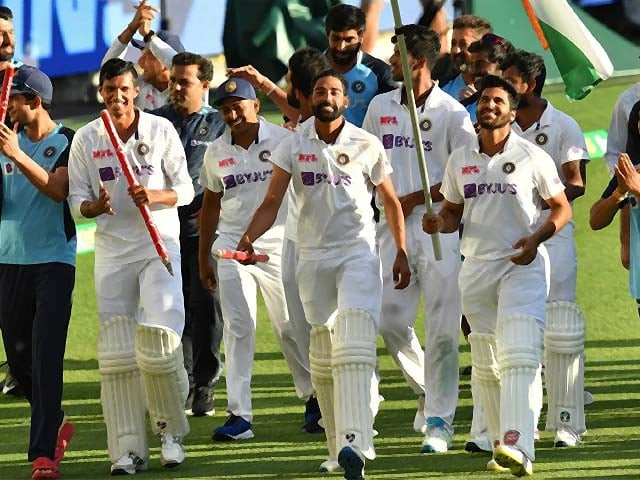I do not consider myself a ‘typical’ Pakistani in the sense that I do not consider India to be an enemy country which must be despised at every cost. In fact, I have gone to the extent of calling myself a Pakistani-Indian for a few years, when in an article I emphasised that besides my Pakistani identity, I have an overarching Indian identity which binds me to the inhabitants of modern political India. However, despite such sentiments, I have always treated the game of cricket as an exception since I have always ferociously backed the Pakistani cricket team. For me, in sports, emotional patriotism is justified.
Not only that, even when India was not playing Pakistan, I do not recall supporting the Indian cricket team. To a certain extent, it was simply the extension of my sports-based patriotism, but to a larger measure, it emanated from the fact that I have always considered India to be an overrated team who could not win cricket matches outside their home soil. Moreover, I also disliked the Indian cricket team because of the “Big Three” controversy and the way BCCI has in the past tried to bully others to accept its terms. Another major reason for not supporting the Indian team in contemporary times was the brash and overly aggressive attitude of their captain, Virat Kohli.
In all honesty, when the recent Australia vs India series started, I was supporting Australia, even though there are also serious problems with the way they play their cricket. I felt a visceral delight when India was skittled out for merely 36 runs because for me it was simply a confirmation of my long-held belief that India was an overrated team that could not win outside their mother country. Since Kohli left after the first Test match, I was convinced that the Indian team, which seemed to be over-dependent on him, and psychologically bruised after the heavy defeat in the first Test, would be thrashed.
However, my desire to see India thrashed morphed into reluctant admiration when India, without Kohli, fought back brilliantly in Melbourne to inflict a defeat on the Aussies. Given what had happened in the first Test match, it was a remarkable turnaround. Moreover, it was a revelation to watch the stand-in captain, Ajinkya Rahane, lead from the front by scoring a magnificent century.
My admiration for the Indian team increased when they battled courageously in the third match and secured a draw. At one point, when Risbah Pant was batting with Cheteshwar Pujara, they even looked like getting to the total. When they both got out, then Ravichandran Ashwin along with Hanuma Vihari engineered a heroic partnership to draw the match. Both the players were visibly unfit, and the Australians threw everything at them, including targeting Ashwin’s body, who got hit several times.
The last Test match was perhaps one of the most amazing games of cricket I have ever seen. The Indian team entered the match without even a single bowler from their original squad due to injuries. The combined bowling experience of the Australian bowling line-up in the Brisbane Test (Starc, Hazlewood, Cummins, Green, Lyon) was 254 Tests whereas for the Indian bowlers (Siraj, Thakur, Saini, Natarajan, and Sundar) it was merely four Tests. Despite such a young and an inexperienced bowling attack, and a formidable fourth innings target, India won at a venue where Australia had not been defeated for over three decades.
Instead of trying to draw the match, the young Indian team decided to go for the win. By the time the match entered its last hour, I had become a full-fledged supporter of the Indian cricket team, cheering every run; and I screamed in excitement when Pant hit the boundary to secure one of the most famous wins in Test cricket. Team India had completely won me over.
It was incredible, it was beautiful, it was, to quote Humphrey Bogart, “The stuff dreams are made of”. There is something so heart-warming when the underdogs win, so awesome when David brings downs Goliath, and so incredible when will and strength of character prevail against the odds. The Indian team which won at the end was not a brash team led by an even brasher captain but was instead composed of youngsters led by an empathic and much humbler captain. Not to forget that during the series the Indian team also endured ugly racism from some spectators, and some sledging from the Australian players including their skipper. At the end, everything is contextual and given the context this series victory will rank amongst one of the greatest ever.
Besides providing joy to millions of Indians, this series has also proven to be an excellent publicity for Test cricket and has once again defied the critics who claim that this format is dead. Yes, Test matches don’t necessarily experience crowded stadiums, but prestige is still associated with this format. For example, a series victory in the T-20 format (which India also won) would not have brought even half of the joy to the Indian fans and admiration from the rest of the world the way this Test series victory has. We must understand that just like different genres of music, cricket also has different formats, and while instant excitement may be associated with white ball cricket, ultimate prestige is still a red ball phenomenon.
Another great thing which this series has done is to cut down Kohli’s importance, both as a player and as a captain in public perception. This is not only good for Indian cricket but even for Kohli himself. For some reason, particularly in the subcontinent, we have this ‘Superman’ complex, where we elevate a particular person (usually a male) to the status of a demi-god. Famous Indian actor Dalip Kumar had once said, “Fame can turn you into a monster”, and unfortunately Kohli was becoming one, believing in his own indispensability and importance. In the longer run it would have also impacted his batting performance due to the unrealistic expectations.
This series has also highlighted that a captain does not need to be like Kohli to succeed. By providing a delightful contrast to Kohli’s style of captaincy, Rahane has demonstrated that effective leadership does not need over aggression. To quote an Indian friend of mine:
“Leadership is always seen about being aggressive or about individual heroics. But one fails to realise that a leader is a facilitator, one who sets the right tone of conduct and one who does best with the available resources by encouraging and reassuring the youngsters or newbies. Nobody relied on the captain’s (Rahane) heroics, but they were motivated by him to be a part of the game. That was the real game changer.”
Finally, the Indian victory should also provide inspiration to the Pakistani cricket team, which also is composed of young players, to believe in themselves and always have a positive attitude. The Indian team has shown that nothing in cricket is impossible provided you have self-belief and courage.



COMMENTS
Comments are moderated and generally will be posted if they are on-topic and not abusive.
For more information, please see our Comments FAQ